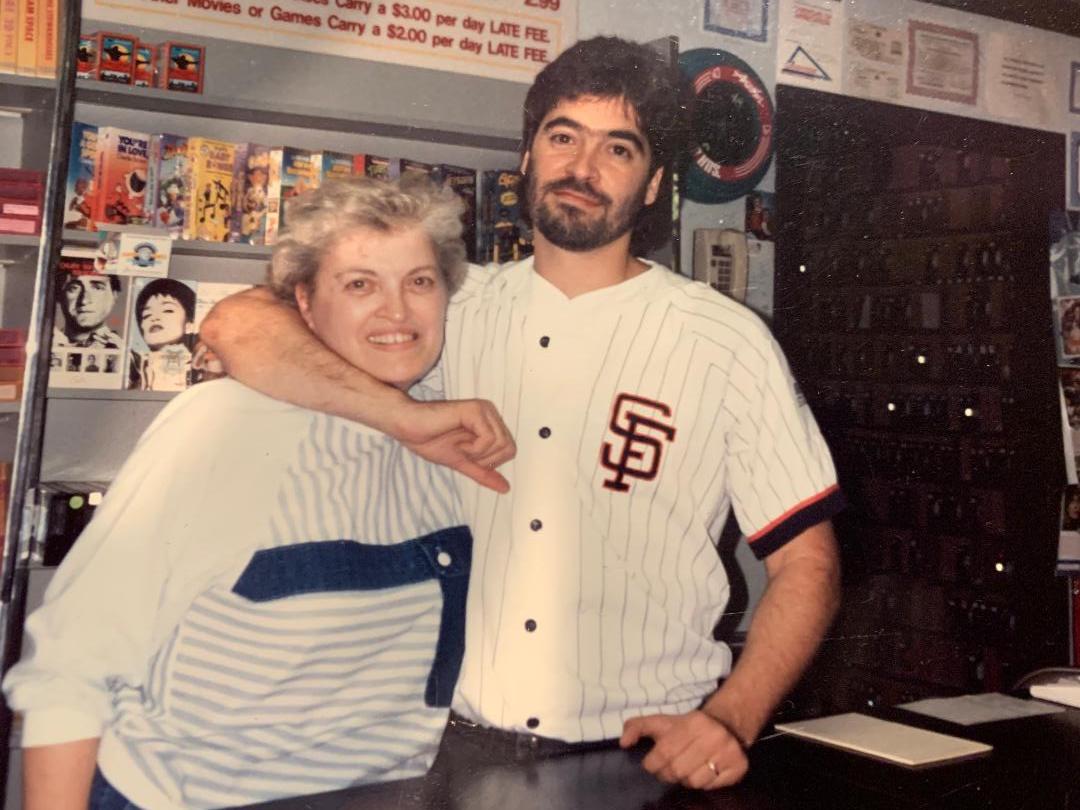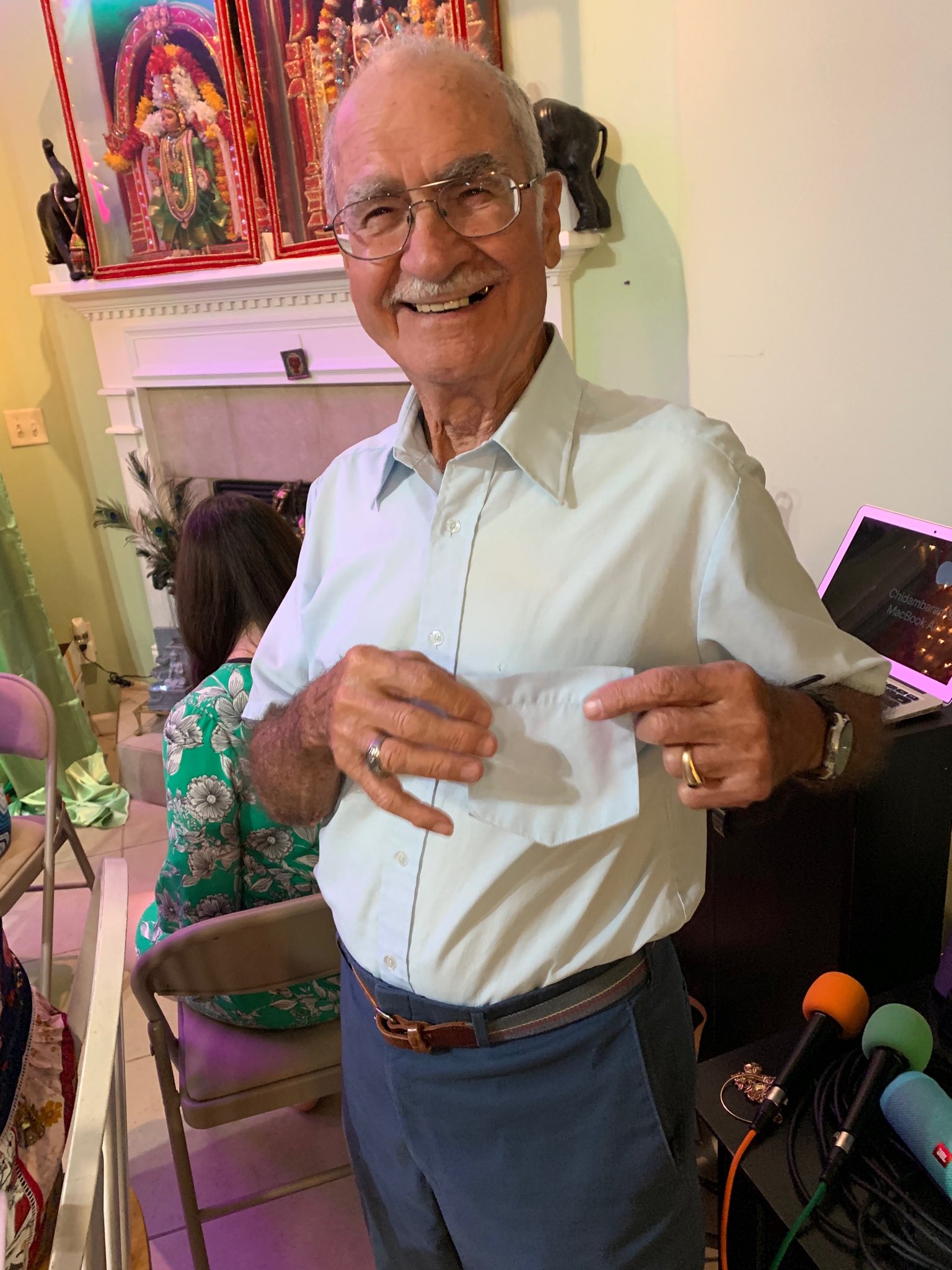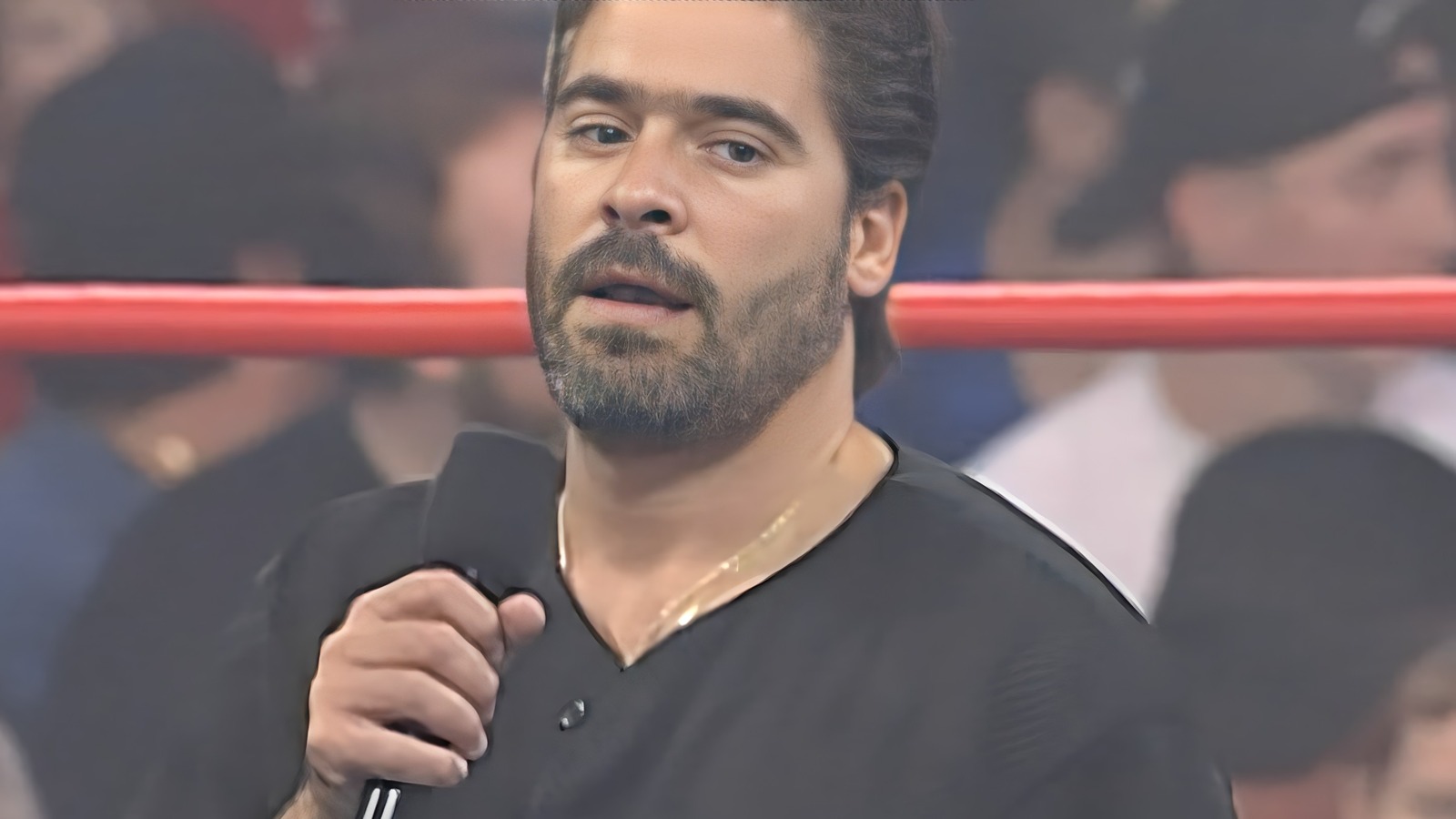Vince Russo - A Look At The Creative Mind
When you think about the people who have truly shaped the world of professional wrestling, a few names probably come to mind. One figure, Vincent James Russo, born on January 24, 1961, stands out for his rather significant contributions. He is, you know, a person recognized for his work as a creative writer, someone who puts together stories for wrestling, and also someone who offers opinions on the sport. His time with the World Wrestling Federation, which we now call WWE, really made an impression, and he became a name many people in the wrestling community talked about quite a bit.
Many folks see Vince Russo as a figure who, in a way, stirred up a lot of discussion and had people taking sides within the wrestling community. He really came into his own as the main person responsible for writing the stories during the WWF's "Attitude Era," a period that, for many, changed how wrestling was presented. This era was known for its edgy content and, well, a different kind of approach to entertainment, and Vince Russo played a big part in making that happen. He is, to be honest, a person whose influence during that time is still talked about even now.
So, we're going to spend some time looking at the career of Vince Russo, exploring what made him such a talked-about individual. We will consider his beginnings, his rise to a prominent position, and how his ideas might have changed the way wrestling shows were put together. It's interesting to think about how one person can have such a lasting effect on an entire form of entertainment, and Vince Russo certainly left his mark. You know, his name is often linked with some of the biggest changes wrestling saw during a very important time.
Table of Contents
- The Story of Vince Russo
- Personal Details - Vince Russo
- What Made Vince Russo Stand Out?
- The Attitude Era and Vince Russo's Influence
- How Did Vince Russo Shape Wrestling?
- Vince Russo's Impact on Storytelling
- Was Vince Russo a Divisive Figure?
- Future Speculation - Vince Russo's Legacy
The Story of Vince Russo
Vincent James Russo, a person born on January 24, 1961, has quite a story when it comes to the world of professional wrestling. He began his career, you know, as someone who wrote for the shows, putting together the narratives and deciding what would happen next. Over time, he took on the responsibility of a booker, which means he was the one making the big decisions about who would wrestle whom, and how the overall show would unfold. He also became a pundit, offering his thoughts and feelings about the sport to a wider audience. Basically, he wore many hats in the wrestling business.
His most recognized periods of work were with the World Wrestling Federation, which is now known as World Wrestling Entertainment, or WWE. It's almost like his name became synonymous with a particular style of wrestling presentation during his time there. He was, in fact, a very central figure in what many fans call the "Attitude Era," a time when wrestling shows really changed their approach to entertainment. This period saw a shift towards more adult-oriented storylines and a faster pace, and Vince Russo was right at the heart of making those creative choices.
He is, quite frankly, often described as one of the most talked-about and, at times, most argued-about people in the whole history of professional wrestling. This isn't just a casual observation; it's something that comes up repeatedly when people discuss his career. His methods and the directions he took wrestling in were, you know, not always met with universal approval, but they certainly got people talking. He had a way of getting attention, and that, in some respects, is a talent in itself within the entertainment business.
Personal Details - Vince Russo
To give you a clearer picture of the person we are discussing, here are some personal details about Vince Russo. It's always helpful, I mean, to have a little background information when thinking about someone's career and influence. These are the basic facts that help place him in the broader context of wrestling history.
| Full Name | Vincent James Russo |
| Date of Birth | January 24, 1961 |
| Place of Birth | Long Island, New York, United States |
| Occupation | Professional Wrestling Writer, Booker, Pundit, Creative Writer, Author |
| Known For | Tenures with World Wrestling Federation (WWF/WWE), Head Writer of the WWF Attitude Era |
What Made Vince Russo Stand Out?
So, what exactly was it about Vince Russo that made him such a distinctive figure in professional wrestling? Well, a big part of it comes down to his approach to writing and creating stories for the shows. He had a style that, you know, really broke away from what many people were used to seeing. Before his time, wrestling often followed a more traditional path, with clear good guys and bad guys and storylines that unfolded over a long period. Vince Russo, however, introduced something different, something that felt more spontaneous and, frankly, a bit more chaotic.
He was known for a creative method that often emphasized surprises and quick turns in the story. It was, in a way, like watching a television show where you never quite knew what would happen next, and the plots could change direction very, very quickly. This approach often meant that established rules or expectations about wrestling might be, you know, thrown out the window. For example, a wrestler who was a hero one week might do something questionable the next, making the audience wonder about their true character. This kept people guessing and, for many, made the shows feel more exciting and less predictable.
His writing style also often involved a lot of what people call "crossover" elements, blurring the lines between what was real and what was part of the show. This meant bringing in real-life issues or backstage happenings into the storylines, which, honestly, was quite revolutionary for its time. It made the wrestling feel more raw and, you know, connected to the actual people involved. This kind of storytelling, while popular with many, also led to some of the discussions and disagreements about his work, as it challenged the traditional boundaries of the sport.
The Attitude Era and Vince Russo's Influence
The "Attitude Era" in the World Wrestling Federation, which happened roughly from the late 1990s to the early 2000s, is often seen as a period of massive change and popularity for professional wrestling. And, you know, Vince Russo was right at the heart of its creative direction as the head writer. His ideas and the way he structured the shows really helped define what that era was all about. It was a time when wrestling shows became more adult-oriented, pushing boundaries with edgier content, more aggressive characters, and storylines that often felt very personal and intense.
During this period, the shows moved away from being purely family-friendly entertainment. They started featuring language and situations that were, in some respects, more suited for a mature audience. This included storylines that touched on controversial topics, characters who were less heroic and more morally gray, and a general feeling that anything could happen at any moment. Vince Russo's vision, basically, was to create television that was unpredictable and always had people talking, whether they liked what they saw or not. This approach, you know, resonated with a very large audience and helped the WWF achieve immense commercial success.
His influence meant that wrestling became a cultural phenomenon during this time, attracting viewers who might not have watched before. The shows were fast-paced, full of surprises, and often quite dramatic, with a focus on character development that was, you know, a bit different from previous eras. The storylines he crafted, with their twists and turns, kept audiences glued to their screens, always wanting to see what unexpected event would unfold next. It's fair to say that without Vince Russo's creative direction, the Attitude Era might have looked, and felt, very different indeed.
How Did Vince Russo Shape Wrestling?
When we talk about how Vince Russo might have changed the way wrestling was presented, we're really talking about his approach to storytelling and the way he viewed the audience. He had a philosophy that, you know, was very much about keeping things fresh and moving quickly. He believed that if you kept the audience guessing and constantly provided new developments, they would stay engaged. This was a departure from the more traditional, slower-paced storytelling that had been common in wrestling for many years.
One of his key ideas was the concept of "crash TV," which meant packing as much action and as many story developments as possible into every single show. This often resulted in multiple storylines running at once, with segments that were short, impactful, and designed to grab attention immediately. It was, basically, a very dynamic way of putting together a wrestling program, almost like a roller coaster ride that never stopped. This style, you know, aimed to prevent boredom and ensure that viewers felt like they were always getting something new and exciting.
He also had a knack for creating characters that, while perhaps not always traditionally heroic or villainous, were certainly memorable. He often focused on giving characters a sense of realness, or at least a connection to real-life situations, which made them feel more relatable or, in some cases, more infuriating. This kind of character development, combined with the fast-paced storytelling, really helped to create a unique viewing experience. You know, it was a style that really leaned into the dramatic and often unpredictable nature of human interactions.
Vince Russo's Impact on Storytelling
The way Vince Russo approached storytelling in professional wrestling had a lasting impact, whether people enjoyed it or not. He was, in some respects, responsible for popularizing a style that focused on shocking moments and unexpected plot twists rather than long-term, carefully built narratives. This meant that storylines might start and finish within a few weeks, or even a single show, keeping the audience on their toes and, you know, always wondering what was next. This was a pretty big shift from the traditional wrestling storytelling that often saw feuds play out over many months.
His influence also extended to how much of the "behind the scenes" world was brought into the actual show. He was, quite frankly, very willing to break the "fourth wall," making references to real-life events, contracts, or even criticisms from fans. This blurring of lines between reality and fiction was, you know, something that really made his shows stand out. It gave the impression that anything could happen and that the wrestlers were not just characters, but actual people dealing with real issues, even if those issues were dramatized for television.
This method of storytelling, while exciting for many, also led to some of the criticisms leveled against him. Some people felt that it sacrificed logical consistency and long-term character development for immediate shock value. However, it's undeniable that this approach, for better or worse, captured the attention of millions and helped propel wrestling to new heights of popularity during the Attitude Era. It was, basically, a very different way of thinking about how to tell stories in the squared circle, and it left a mark on how wrestling shows are put together even today.
Was Vince Russo a Divisive Figure?
It's fair to say that Vince Russo is often seen as one of the most talked-about, and sometimes argued-about, figures in the history of professional wrestling. His name frequently comes up in discussions where people have very strong feelings, both positive and negative, about his contributions. This really stems from the creative choices he made and the style of wrestling he championed. You know, when someone makes big changes to something people care deeply about, there are bound to be different opinions.
On one hand, many fans and industry insiders credit him with helping to revitalize professional wrestling during the Attitude Era, bringing in new viewers and making the product feel fresh and exciting. They might point to the increased ratings and the overall buzz surrounding the WWF at that time as proof of his success. His willingness to take risks and challenge traditional norms was, for these people, a sign of his creative vision and his ability to connect with a changing audience. He was, basically, someone who wasn't afraid to try new things, and that, in some respects, really paid off.
On the other hand, a significant portion of the wrestling community has been critical of his work, particularly regarding what they perceived as a lack of long-term planning, reliance on shock tactics, and storylines that sometimes made little sense. Some argued that his style prioritized immediate gratification over logical progression and that it ultimately harmed the integrity of wrestling storytelling. These differing viewpoints, you know, are what make him such a polarizing person. People either loved his approach or found it to be, quite frankly, detrimental to the sport.
Future Speculation - Vince Russo's Legacy
When we think about Vince Russo's lasting impact on professional wrestling, it's clear that his legacy is a complex one, still debated by fans and those who work in the business. He is, you know, undeniably linked to one of the most successful periods in wrestling history, the WWF Attitude Era, and for that alone, his name will always be part of the conversation. His approach to creative writing, which emphasized quick changes and unexpected moments, certainly left a mark on how wrestling shows are put together, even if not every aspect of his style is still used today.
His influence can be seen in the way some modern wrestling promotions try to incorporate elements of realism or blur the lines between what's real and what's part of the show. The idea of "anything can happen" that he helped popularize is, basically, still a goal for many creative teams in wrestling. However, the discussions around his work also serve as a reminder of the importance of balance between immediate excitement and long-term storytelling. You know, finding that sweet spot is something every writer tries to do.
Ultimately, Vince Russo will likely be remembered as a person who, for a time, completely changed the way professional wrestling was presented. He was a creative force who pushed boundaries, took risks, and, in doing so, generated both immense popularity and considerable debate. His career serves as a fascinating case study in how one individual's vision can reshape an entire form of entertainment, and how that vision can be viewed very differently depending on who you ask. It's interesting to consider how his ideas, you know, continue to echo in the wrestling world, even years later.

Vince Russo 2025: Wife, net worth, tattoos, smoking & body facts - Taddlr

Vince Russo 2025: Wife, net worth, tattoos, smoking & body facts - Taddlr

Vince Russo Comments On Conspiracy Theory That Vince McMahon Sent Him